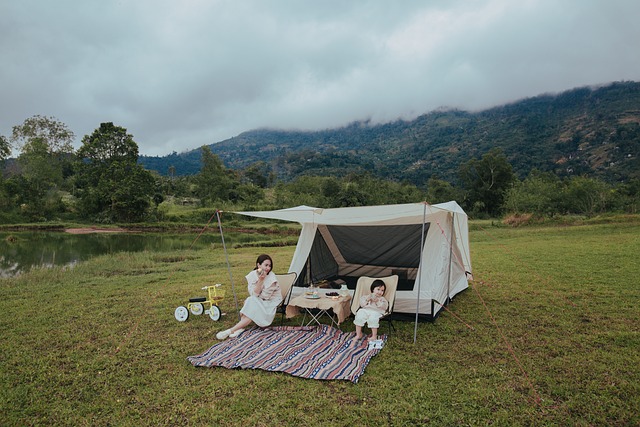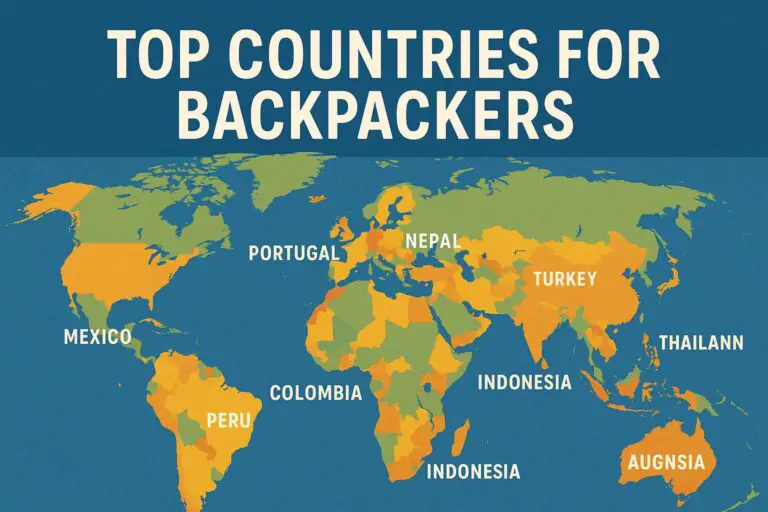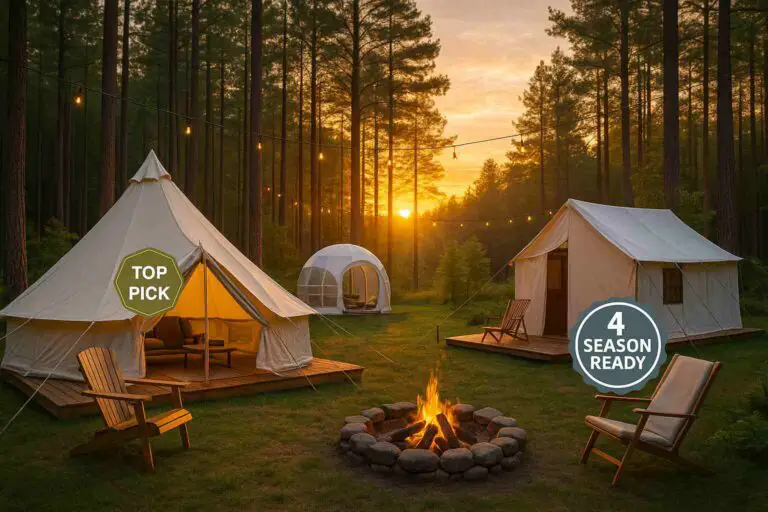Camping is a great way to enjoy the outdoors and spend quality time with your family. However, when you have an infant, it requires extra preparation to ensure their safety and comfort. Camping with an infant can be a wonderful experience, but it does come with unique challenges that need to be addressed. In this article, I will provide you with a comprehensive checklist for camping with an infant, including all the essential gear and safety precautions you need to take to make your trip a success. I will also share some tips for making the camping trip enjoyable for both the infant and the parents. So, whether you’re a seasoned camper or a first-timer, read on to learn everything you need to know about camping with an infant.
Planning for Camping with an Infant
Planning ahead of time is crucial when it comes to camping with an infant. Here are some important considerations:
- Choose the Right Campsite: When choosing a campsite, look for one that is family-friendly and has amenities that are suitable for an infant. This may include access to clean water, restrooms with changing tables, and a playground.
- Weather and Temperature Considerations: Infants are more susceptible to extreme weather conditions, so make sure you check the weather forecast before you go camping. Choose a time of year when the weather is mild and comfortable for your infant. Also, pack appropriate clothing and gear to keep your infant warm and dry if it gets chilly or rainy.
- Sleeping Arrangements: It is important to plan for a safe and comfortable sleeping environment for your infant. Consider using a portable crib or a playpen with a bassinet attachment. Make sure your infant is not sleeping on the ground or in an unsafe location where they can roll over or fall.
- Travel Time: Take into account the travel time to your campsite, and plan accordingly. Make sure you have enough time to set up camp and settle in before it gets dark.
Essential Gear Checklist
When camping with an infant, it is essential to bring the right gear to ensure their safety and comfort. Here’s a comprehensive checklist of essential gear:
Tent and Sleeping Gear:
- A family-sized tent with enough space for your family and gear
- A portable crib or playpen with a bassinet attachment for your infant to sleep in
- A warm and comfortable sleeping bag or blankets
- A camping pad or air mattress for extra comfort
Clothing and Diapers:
- Plenty of diapers, wipes, and diaper rash cream
- Extra clothing for your infant, including onesies, socks, hats, and pajamas
- Warm layers and a hat for colder weather
- Swimwear and a sun hat for warmer weather
Food and Feeding Supplies:
- A portable high chair or booster seat
- Bottles, formula, and a bottle brush for cleaning
- Baby food and snacks
- A cooler or ice pack to keep food and drinks cold
- A camping stove or portable grill for cooking food
Hygiene and First-Aid Items:
- Baby-safe sunscreen with an SPF of 30 or higher
- Bug spray or natural insect repellent
- Hand sanitizer and soap for handwashing
- Infant-friendly first-aid kit, including a thermometer, infant pain reliever, and bandages
- Moisturizer or lotion to soothe dry skin
Entertainment and Toys:
- Books, soft toys, and rattles to keep your infant entertained
- A baby carrier or sling for hiking or walking
- A portable baby swing or bouncer for naps and playtime
Safety Precautions for Camping with an Infant
When camping with an infant, it is important to take extra precautions to ensure their safety. Here are 5 safety tips to consider:
- Protect from Sun Exposure: Infants have delicate skin that can easily burn, so it’s important to protect them from the sun’s harmful rays. Dress them in light-colored, lightweight clothing that covers their arms and legs. Use a wide-brimmed hat to protect their face and scalp. Apply sunscreen that is specially formulated for infants and has an SPF of 30 or higher.
- Prevent Insect Bites and Stings: Insects can be a nuisance when camping, but they can also be dangerous if they bite or sting your infant. Use a natural insect repellent that is safe for infants, and avoid using products that contain DEET. Dress your infant in long sleeves and pants to minimize exposed skin. Use a mosquito net over the crib or playpen to provide extra protection.
- Keep Infant Hydrated: Infants are more susceptible to dehydration, so make sure they are getting enough fluids throughout the day. Offer breast milk or formula frequently, and make sure your infant is drinking enough water if they are old enough to do so.
- Watch for Wildlife: Camping in the great outdoors means that you may encounter wildlife. Make sure to keep a safe distance from any animals you encounter and never leave your infant unattended.
- Ensure a Safe Sleeping Environment: Create a safe sleeping environment for your infant by placing them in a crib or playpen that is away from any potential hazards. Do not place them near a fire or in a location where they could roll over and fall.
Tips for a Successful Camping Trip with an Infant
Camping with an infant can be challenging, but it can also be a fun and rewarding experience. Here are six tips for a successful camping trip with an infant:
- Choose the Right Time for the Trip: Consider your infant’s age and schedule when planning your camping trip. Choose a time when your infant is well-rested and fed, and when the weather is mild and comfortable.
- Stick to a Routine: Infants thrive on routine, so try to stick to your usual routine as much as possible while camping. This can include nap times, feeding times, and playtime.
- Bring Familiar Items from Home: To help your infant feel more comfortable in a new environment, bring some familiar items from home, such as a favorite blanket or stuffed animal.
- Keep Your Infant Entertained: Camping can be a great opportunity for your infant to explore the outdoors. Bring along some toys and books to keep them entertained, and take them on short walks or hikes to explore the surroundings.
- Be Flexible: While it’s important to stick to a routine, it’s also important to be flexible and go with the flow. Camping can be unpredictable, and your plans may need to change at a moment’s notice.
- Take Breaks: Camping can be exhausting, especially with an infant. Take breaks throughout the day to rest and recharge, and make sure to prioritize self-care for yourself and your partner.
Conclusion
In conclusion, camping with an infant can be a fun and rewarding experience, but it does require extra preparation and planning. Our “camping with an infant checklist” provides you with everything you need to know to ensure your trip is safe and enjoyable for both you and your infant. From choosing the right campsite to packing the essential gear and taking safety precautions, our comprehensive guide will help you create lasting memories with your family in the great outdoors. So grab your gear, get out there, and enjoy the adventure of camping with your little one!








